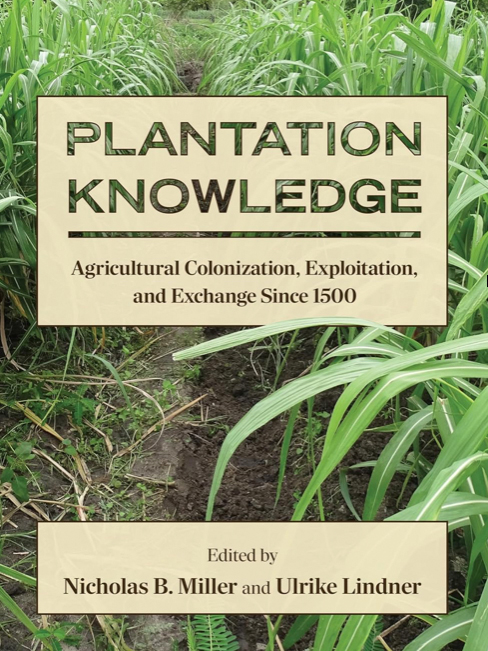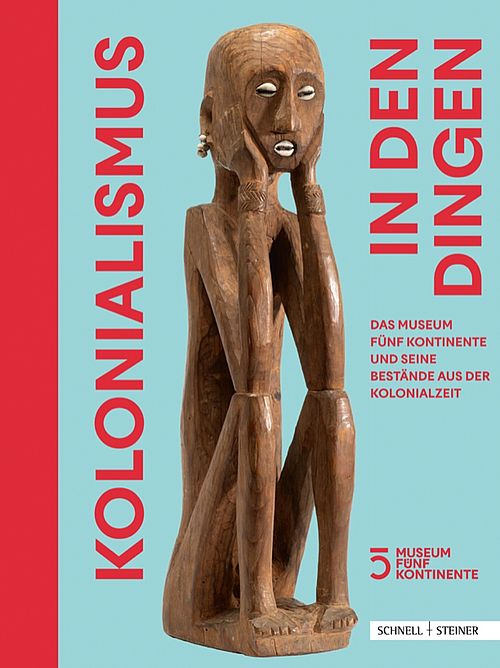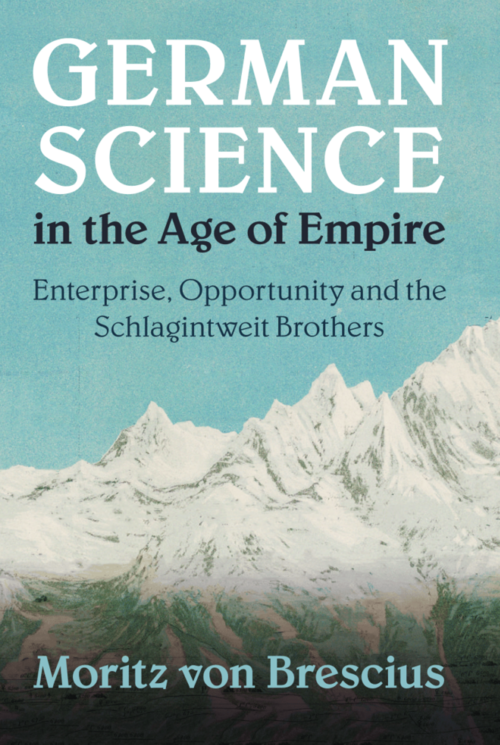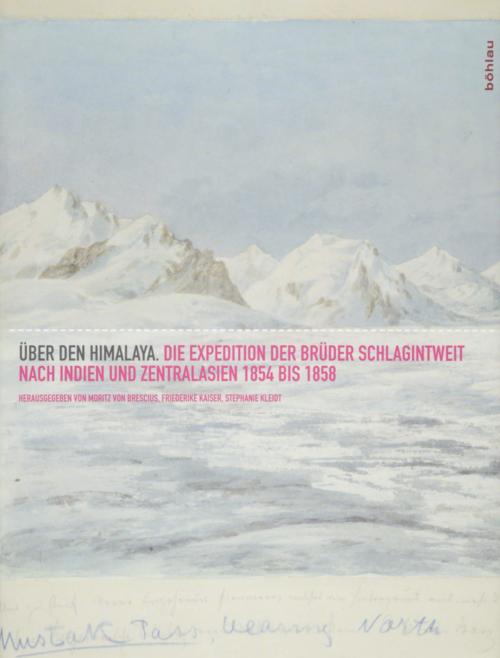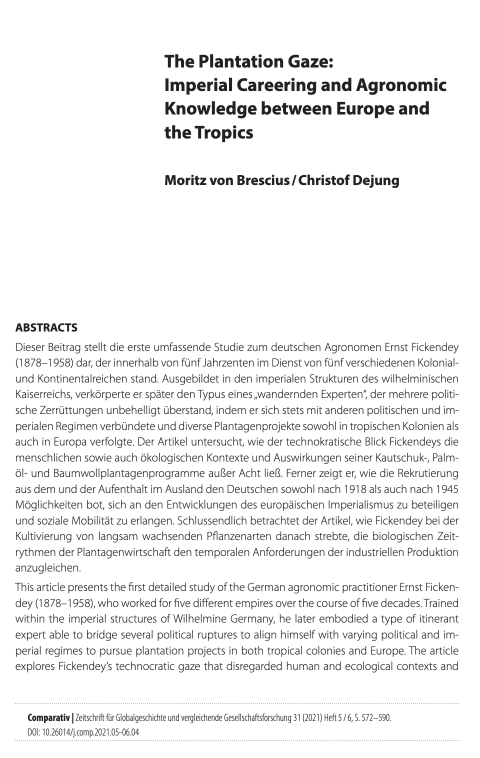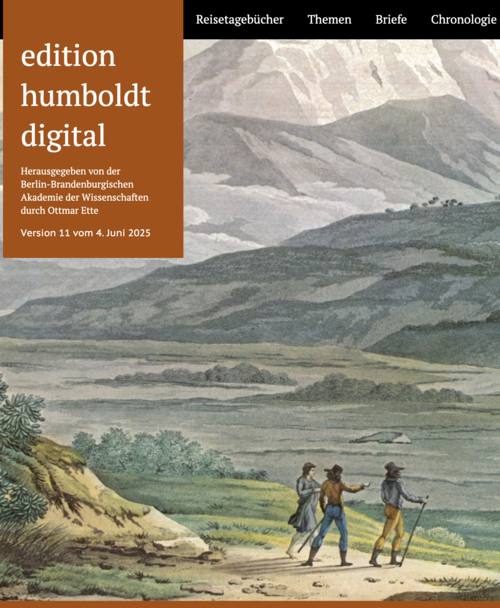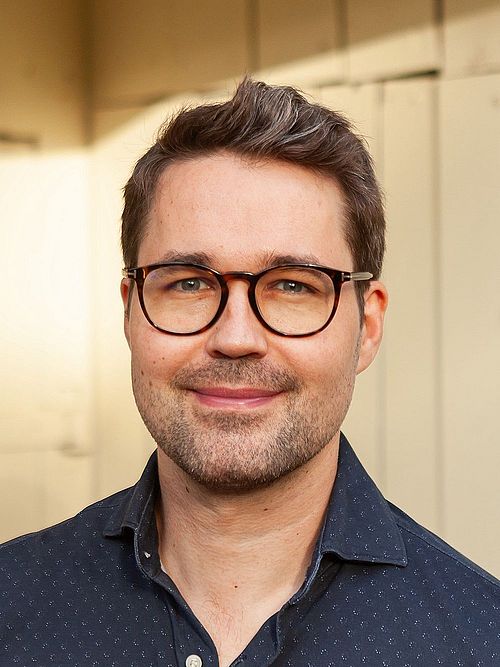
Prof. Dr. Moritz von Brescius
SNSF Professorship von Brescius
Institute for European Global Studies
University of Basel
Riehenstrasse 154
CH-4058 Basel
Office 00.012
I am a global historian of Europe and Asia from the late eighteenth century to the present, focusing on resource and environmental history, economic history, and science and empire studies in global and comparative perspective. My first book, German Science in the Age of Empire (Cambridge UP, 2019), explored the transnational nature of European imperialism by looking at the conflicted recruitment of scientific expertise and manpower from the German lands into foreign imperial systems during a period of intensified interactions between Europe and other world regions. I see this book as a reflection on how to conceptualize the movement of people, objects, practices, and ideas in a global perspective, including the social and political frictions that the pursuit of transnational science provoked. The book is based on my dissertation, which garnered three prizes in different fields: the Gisela Bonn Prize of the Indian Council for Cultural Relations, the Martin Behaim Prize of the German Society for Global History, and the Young Scholar Award of the German Society for the History of Science, Technology and Medicine (GWMT).
I am currently completing a book project entitled Empire of Scarcity: A Global History of Assam Rubber. The work is a rich study of capitalism, empire, and environmental change, focused on the commodity frontier of rubber in northeast India, which I analyze in its global contexts. It seeks to provide a new understanding of the relationship between the production of specific commodities and the space of empire. Drawing on sources in several European and non-European languages from over 37 archives on three continents, the work explores the legal, social, political, and economic dimensions of rubber extraction and production in Assam, where the world’s first extensive and scientifically managed rubber plantations were established by the colonial state in the early 1870s as an act of imperial pre-emption. The work provides a revisionist account of the plantation revolution for rubber, an indispensable commodity at the heart of the industrial revolution and modern communication and transportation technologies of the nineteenth and twentieth centuries. It shows how the West’s growing dependence on this exclusively tropical resource, combined with temporal calculations of its future depletion, required the imperial bureaucracy to develop new outlooks and procedural logics under the pressure of scarcity fears.
I have taught in the history departments of the University of Cambridge, the University of Konstanz, Harvard University, and the University of Bern. I have conducted postdoctoral research on fellowships from the Center for European Studies and the Weatherhead Initiative on Global History at Harvard University, the Swiss National Science Foundation, the German Academic Exchange Service (DAAD), the German Academic Scholarship Foundation (Studienstiftung), the Wissenschaftskolleg Berlin, the Volkswagen Foundation, the Zukunftskolleg Konstanz, and the LMU Center for Global History in Munich, at which I remain a permanent participant. I have published my work in leading journals such as Modern Asian Studies and Comparativ, and was an invited contributor to The Oxford World History of Empire. I am currently editing, with Christof Dejung, a special issue on the topic: “The Temporalities of Capitalism: Time, Timing and the Formation of the World Economy.”
I recently received a SNSF Consolidator Grant for the project “The Battle of Materials: Commodity ‘Research and Propaganda’ and the Road to Immoderate Consumption, 1900– 1980” (CHF 1,698,382). This project uses the industrial “battle of materials” to examine the problem of supposed underconsumption of raw materials in the 20th century during times of glut, when resource producers, states, corporations, and R&D centers in Europe and the US sought new applications and markets for raw materials – thus contributing to material path dependencies, skyrocketing extraction and resource overuse, and the “Great Acceleration” of human impacts on global environments.
At Konstanz, Bern and Harvard, I have taught courses on economic history and the history of capitalism, modern resource regimes, plantation economies and slavery, environmental history, industrialization, the history of science and consumption, Euro-Asian relations, and European and U.S. political history in global perspective.
“The Battle of Materials: Commodity ‘Research and Propaganda’ and the Road to Immoderate Consumption, 1900– 1980”
The focus will be on the intertwining of state interests and private sector initiatives through resource institutes, resource producers and cartels in the US, UK, France, the Netherlands and Germany. My team of researchers will explore the onset of R&D and its dramatic role in unleashing global demand for countless new materials that competed for industrial application. Framed as a problem of resource “underconsumption” rather than overproduction, our group will examine the political and economic interests behind the manipulation of high, unsustainable rates of commodity consumption as a key factor in the new geological age in which humans have become the defining force in the evolution of life on planet Earth.
Deutschland in einer imperialen Welt: Agrarkarrieren zwischen Europa und den Tropen
Das Forschungsprojekt möchte zu einer kritischen Auseinandersetzung mit den imperialen Verflechtungen Deutschlands im 19. Und der ersten Hälfte des 20. Jahrhunderts beitragen. Es behandelt durch einen transnationalen und empirisch gesättigten Ansatz koloniale Biographien, Wissenstransfers und Expertenkulturen, die die deutschen Kleinstaaten, das geeinte Kaiserreich, die Weimarer Republik und den NS-Staat mit globaler landwirtschaftlicher Expertise und der Geschichte von unfreier Arbeit und Zwangsarbeit verbanden – auch über die Zäsur von 1945 hinaus, da deutsche Agrar-Experten auch nach dem Zweiten Weltkrieg, in der anbrechenden Phase der Dekolonisierung, hohe Positionen als Berater, Plantagenmanager und Besitzer in europäischen Übersee-Kolonien bekleideten. Erste Ergebnisse des Vorhabens sind im Artikel «The Plantation Gaze» (mit Christof Dejung, 2021) veröffentlich wurden, und waren Grundlage mehrerer internationaler Vorträge und Vorlesungen.
«Waste/Resources» als Gegenstand historischer/kulturwissenschaftlicher Forschung
Lehrstuhlübergreifendes Forschungsprojekt an der Universität Bern zu einem interdisziplinären, breiten, globalen und neuen Forschungsfeld. Die Treffen der Arbeitsgruppe mit Vertreterinnen und Vertretern der Umweltgeschichte, der Schweizer, Osteuropäischen und Neueren Allgemeinen Geschichte umfassen die Organisation von Vortragszyklen sowie thematische und konzeptionelle Diskussionen mit Publikationsabsicht für ein einschlägiges Themenheft einer internationalen Fachzeitschrift. Wir werden im Rahmen des Consolidator Grants zu „The Battle of Materials” mit den Berner Kolleginnen und Kollegen weiterhin kooperieren.
Empire of Scarcity: Empire of Scarcity: A Global History of Assam Rubber
Mein kurz vor Abschluss stehendes Habilitationsprojekt behandelt die politische Ökonomie des britischen Weltreichs anhand der strategischen Ressource Gummi. Anhand eines globalgeschichtlichen Ansatzes untersucht die Arbeit im Besonderen die prosperierende Entwicklung, den Niedergang und die erneute Mobilisierung der Commodity Frontier für Gummi in Nordost-Indien (Assam) von der zweiten Hälfte des 19. Jahrhunderts bis in die Jahre nach der indischen Unabhängigkeit. Als Folge von zunehmendem Raubbau an ‚wilden‘ Kautschukbeständen entlang der Tropen lancierten dort britische Wissenschaftler 1873 die erste große Kautschukplantage der Welt. Verstanden als ein Akt imperialer Prävention, um gefürchtete Rohstoff-Knappheiten in der Zukunft zu verhindern, zeigt die staatliche betriebene Ressourcen-Extraktion von sowohl wildem als auch systematisch kultiviertem Gummi, wie sich im Zeitalter der Industrialisierung neue Funktionen und Handlungslogiken imperialer Bürokratien unter dem Druck von Knappheits-Diskursen herausbildeten, und industrielle Produktionszentren in Assam entstanden.
Zudem erforscht das Buch, wie der koloniale Staat einheimische Kleinbauern in der Kultivierung von Kautschukplantagen schulte. Durch diese Entwicklungspolitik griff die Administration tief in die lokale Sozial- und Agrarstruktur ein, da «tribal» communities zunehmend in marktwirtschaftliche Dynamiken und die Geldwirtschaft integriert wurden. Gleichzeitig kooperierte die britische Administration mit indischen Kaufmannseliten wie den kapitalreichen Marwari-Händlern, die zunehmend den Export von Wildkautschuk kontrollierten, und imperiales Recht und Institutionen für eigene Zwecke und Interessen vereinnahmten. Dies erlaubt es, detailliert zu untersuchen, wie wichtig auch nichtwestliche Akteure für die Herausbildung des globalen Kapitalismus waren. Durch die zeitlich weitgefächerte Studie werden nicht nur die politische Regulierung von Raubbau an wilden Forstbeständen, die Errichtung offizieller und dann privater Plantagenökonomien für Kautschuk im 19. Jahrhundert mit ihren geschlechtsspezifischen Arbeitsformen, sondern auch Fragen von internationalen Ressourcen-Kartellen in der Zwischenkriegszeit sowie die Steuerung von Kriegswirtschaften im 20. Jahrhundert in den Blick genommen. Die Arbeit betrachtet zuletzt auch die ökonomischen, sozialen, und umweltgeschichtlichen Transformationen der Dekolonisierung und fragt nach den Kontinuitäten tropischer Ressourcengewinnung und Weltmarktintegration ländlicher Gesellschaften über politische Zäsuren hinweg.
The Temporalities of Capitalism. Time, Timing and the Formation of the World Economy
Forschungsprojekt (mit Christof Dejung, Bern)
Die Geschichte des Kapitalismus ist in den letzten zehn Jahren disziplinenübergreifend auf ein wachsendes Interesse gestoßen. Doch obwohl bahnbrechende Studien wie die von E. P. Thompson (1967) oder Jacques Le Goff (1960) die Rolle neuer Zeitregimes bei der Durchsetzung des Kapitalismus untersuchten, haben bisher nur wenige Studien das Thema direkt adressiert (Sewell 2008; Beckert 2016; Ogle 2019). Das begonnene Forschungsprojekt wird historiographisches und analytisches Neuland betreten, indem es die Bedeutung zeitlicher Regime für den Durchbruch und die Krisen des Kapitalismus in bestimmten Regionen und Zeitabschnitten untersucht. Indem es die Geschichte der Temporalitäten, die sich zu einem lebendigen Forschungsfeld entwickelt hat, mit der Geschichte des Kapitalismus verknüpft, geht es der Frage nach, inwieweit die Wirtschaftsgeschichte im Allgemeinen und die Geschichte des Kapitalismus im Besonderen nicht verstanden werden kann, ohne die kulturellen Prozesse zu untersuchen, die die Durchsetzung spezifischer ökonomischer Strukturen und Praktiken begleitet und oft erst ermöglicht haben. Im Mittelpunkt des kollaborativen Forschungs- und Publikationsprojekts stehen folgende Fragen: Sind kapitalistische Ökonomien durch eine bestimmte Art des Zeitmanagements und der Zukunftsberechnung strukturiert? Ist es sinnvoll, zwischen verschiedenen Spielarten des Kapitalismus (Handelskapitalismus, Industriekapitalismus, Finanzkapitalismus, usw.) zu unterscheiden, die sich jeweils durch bestimmte Zeitregime auszeichnen?
June 2025: Basel Conference: “Global Histories of Capitalism and the Environment”
September 2024: Bern Conference: “Asian Borderlands: Cross-Border Exchange and Extraction in Modern History”
November 2023 : Bern Conference: “Frontiers in Global History: Connections and Disconnections”
August 2023 : Bern Conference: “Extraction, Sovereignty and Resources in the Long Great Acceleration: Writing Global Economic and Environmental Histories, 1800-2000”
June 2023: Harvard-Bern Conference: “Natural Resources, Sovereignty, and Markets: Revisiting Socio-Economic Histories of the Nineteenth and Twentieth Centuries”
June 2022: Harvard Conference: “Resources and Their Substitutes: Natural Surrogates and Synthetic Competitors in World History”
November 2019: Co-organizer of the conference “Neuverräumlichungen und gesellschaftlicher Wandel in der Globalgeschichte” at the University of Leipzig.
October 2019: Conference “The Challenge of Resource Imperialism: Labour, Science, and Commodities in Circulation,” at the University of Bern.
May 2019: Conference “Contextual Biographies Between Agency and Structure in a Global Age,” University of Bern
2016-2018: Co-organizer and applicant of a research project on über Cultural Brokers and their Networks, 1700 to the Present, between Konstanz and Cambridge (UK), funded by the DAAD.
First workshop: Historicizing Cultural Brokers: Agency and the Limits of Power, 1700 to The Present, Cambridge (UK), 15-16 Dezember 2016
October 2016: Co-organizer of the Konstanz conference of the project Global Nodes, Global Orders (Oxford Centre of Global History) on “Flows and Orders: A Tension in Global History,” with Prof. Dr. Jürgen Osterhammel and Dr. Cornelia Escher
January 2017: Workshop of the research group Global Processes with Prof. Tony Hopkins (Cambridge UK): “From Imperial to Global History”
July 2015: Author’s workshop of the research group Global Processes with Prof. John Darwin (Oxford): Paths to Global History”
03/2013-04/2015: Scientific co-curator for the museum exhibition “Over the Himalayas. The Expedition of the Brothers Schlagintweit to India and Central Asia, 1854-1858,” Alpines Museum Munich
January 2014: Co-organizer of the conference: “Ideologies of Empire in the Modern World,” European University Institute in Florence
May 2012: Co-organizer of conference: “Colonial Careers: Transnational Scholarship Overseas in the 19th and 20th Centuries,” European University Institute in Florence in cooperation with LMU Munich
- Permanent participant in the Munich Center for Global History.
- Fellow of the Weatherhead Initiative on Global History (WIGH).
- Invited member of the research group CCCALL: Capitalism in Context: Commodification and Appropriation of Land and Labor in the Modern World, University of Bern.
- Invited as a member of the scientific advisory board for a graduate workshop at Sciences Po Paris, on «Mettre en valeur les empires : XIXe-XXe siècles ».
- Invited member and co-editor of the research and edition project “edition humboldt digital”, Berlin Brandenburg Academy of Sciences (BBAW).
- Member of the international Leverhulme research project Global Nodes, Global Orders (Partner Universities: Oxford, Princeton, Osaka, Calcutta, Leiden).

